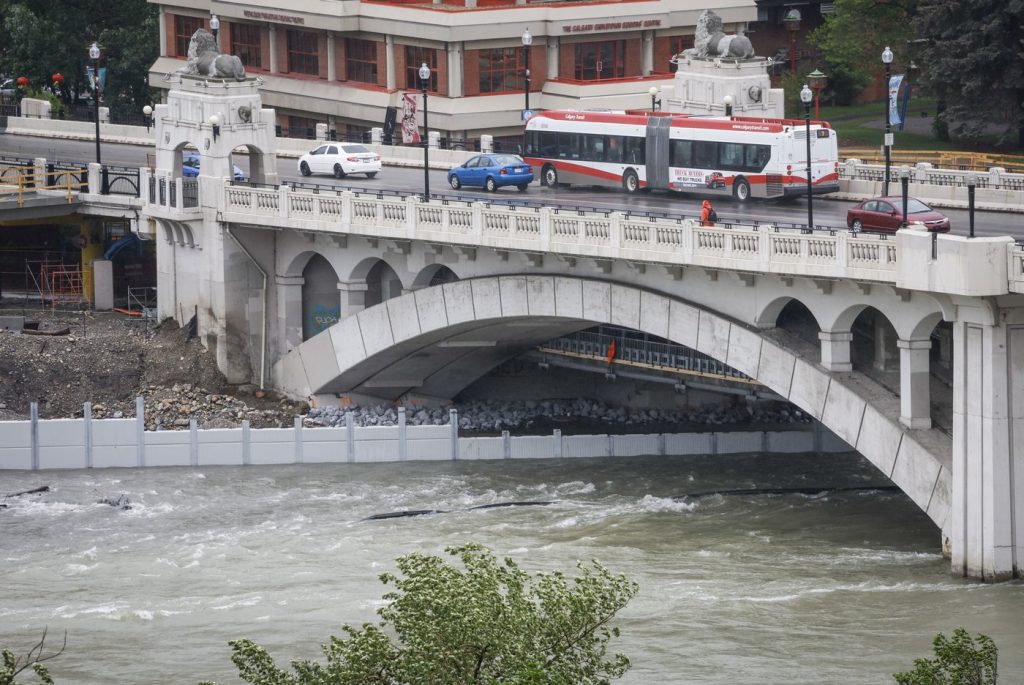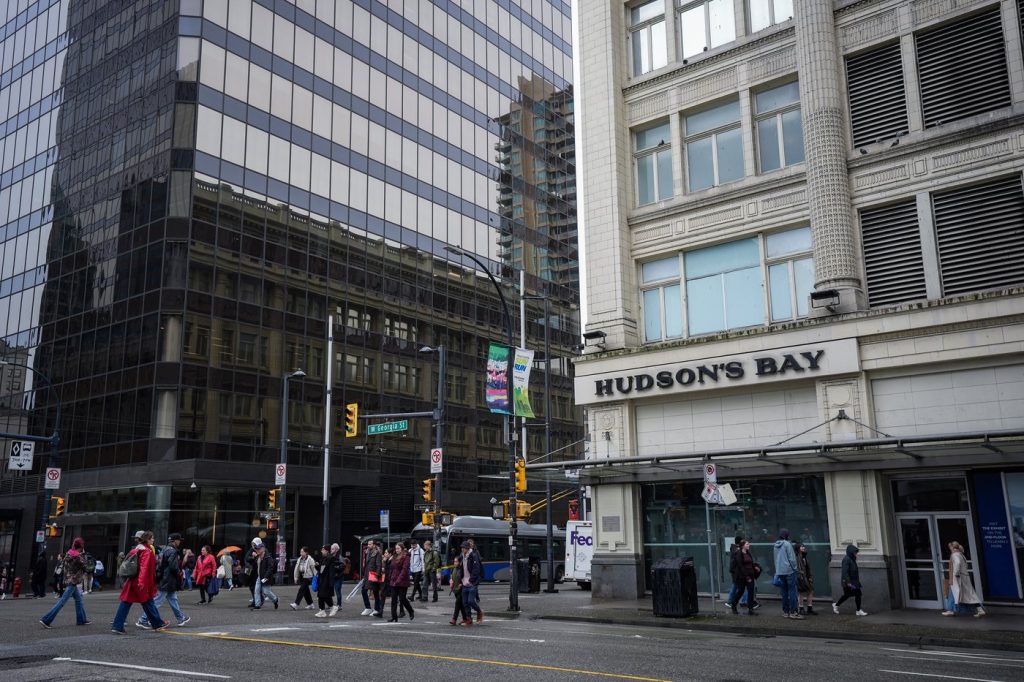CBE establishing next steps after school cancellations
Posted Mar 16, 2020 3:40 pm.
Last Updated Mar 16, 2020 4:43 pm.
This article is more than 5 years old.
CALGARY (660 NEWS) — “We know that the cancellation of classes is causing some concern, in particular around how learning can continue.”
Calgary Board of Education Trustee Marilyn Dennis knows the school system is in new territory following the cancellation of K-12 classes in Alberta, and officials are doing all they can to figure out how to progress.
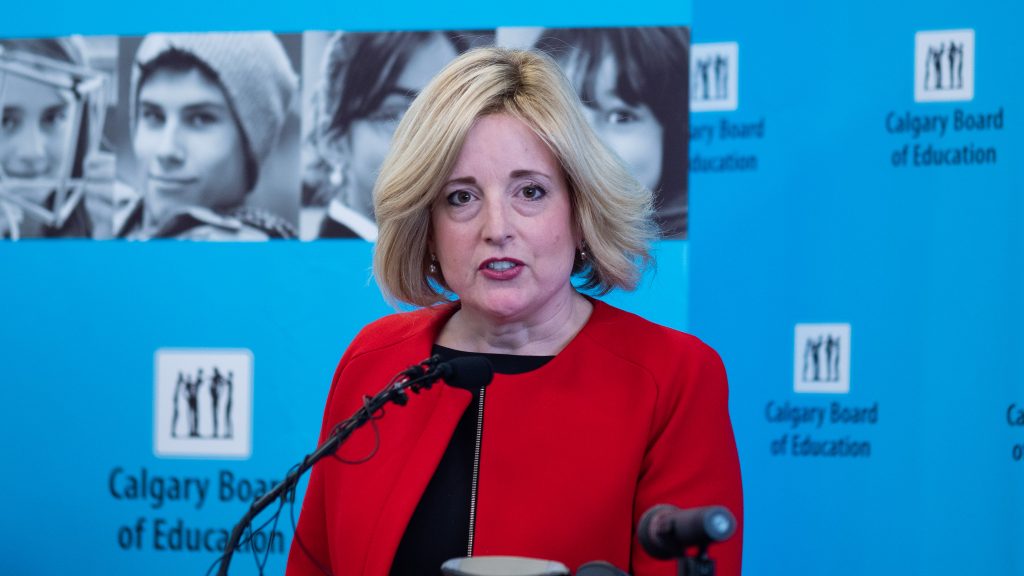
CBE Trustee Marilyn Dennis speaks to reporters about the decision to cancel schools in Alberta due to the COVID-19 pandemic.
This means teachers need to learn new ways to reach their students, while the students need to get into the swing of learning in a new environment.
On Sunday, the Alberta government decided to cancel classes amid the COVID-19 pandemic, creating some initial confusion about what happens next.
During a media conference on Monday, the CBE assured the public that there would be lots of communication.
“We will work to support our students regardless of how long it takes to welcome students back into our schools,” added Dennis.
The CBE and other school boards advocated for the closure, as they were concerned about not being able to keep facilities adequately clean to mitigate the risk of exposure to the virus.
But this has resulted in many questions from parents and teachers, with the latter still working in the schools right now, establishing lesson plans that can be effectively taught online.
A move to digital learning presents new challenges as well.
“It is a significant disruption, not just in the next two weeks,” said Superintendent Joanne Pitman. “We know that access to technology is not the same for everyone. We know that parental supports will not be the same. We’re working hard to ensure that our teachers are clear on what they manage immediately.”
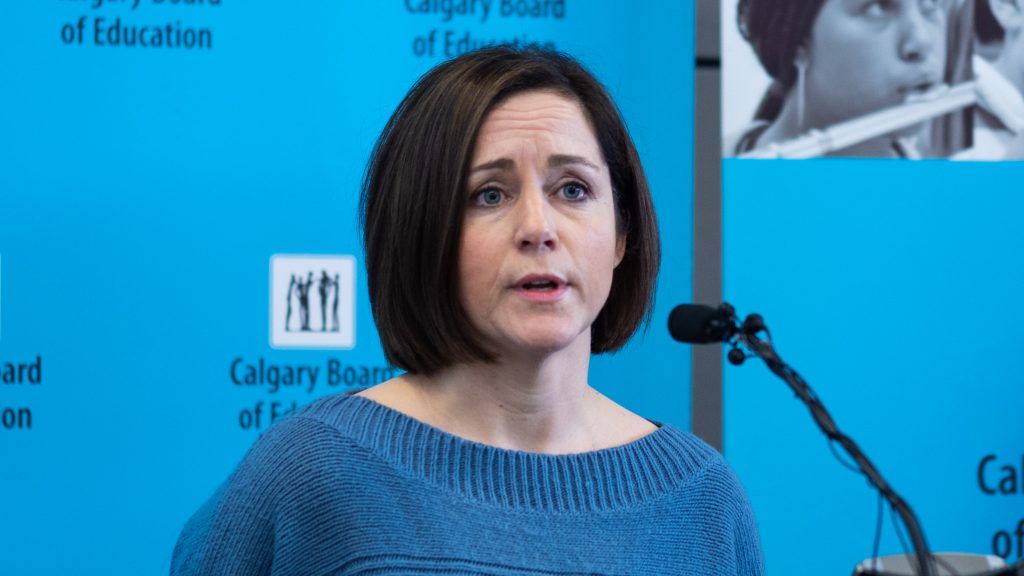
CBE Superintendent Joanne Pitman says there will be many challenges in transitioning to online learning moving forward.
There should not be any new financial needs due to this shift, as lots of infrastructure is already in place, however the board just has to make sure the systems can handle an influx of new users.
This means the CBE will be sending out regular communications to teachers so they can look after the needs of students and so no child is left behind.
However, as not every student learns the same way, Pitman acknowledged that this is not a one size fits all solution and more wrinkles will have to be ironed out over time.
“To pretend that all elements of delivery, of continuity of education, will remain of the same quality and design — simply replacing what is happening in a classroom physically — is not realistic.”
The CBE is also working with other school boards to ensure continuity, and what other boards experience in other parts of the province may also help direct what happens in Calgary.
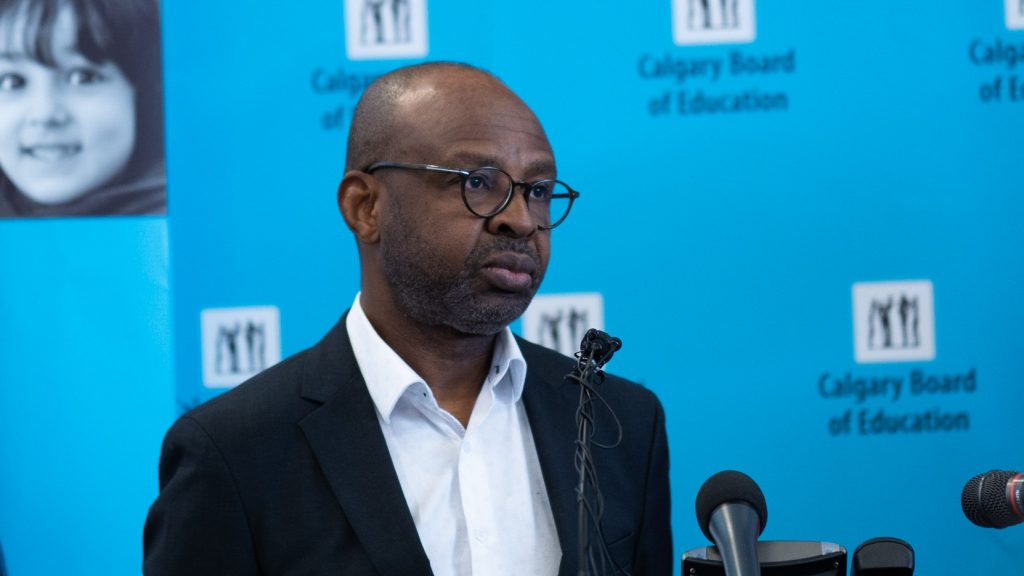
CBE Chief Superintendent Christopher Usih says the Calgary board is working with counterparts to ensure continuity in this unique situation.
Information on mental health supports and options for food security will be passed along to parents as well.
In addition, there will be a significant focus put toward Grade 12 students so that everyone eligible to graduate can do so.
“We have prioritized our high school programming first,” said Pitman. “We want to make sure that Grade 12 students (across the province) receive these supports.”
This does present challenges in assessment, such as diplomas and other final exams, but there are plans to keep these intact even if they are done slightly differently.
“We have other components of work that stopped very abruptly,” said Pitman. “Those pieces need to be followed up on, and our schools will take time to do so.”
Some patience will be required in the short term as school boards have more conversations with the province about how to handle the situation, but all parties should keep an eye out for further information during and immediately after the public school spring break.
